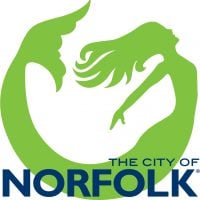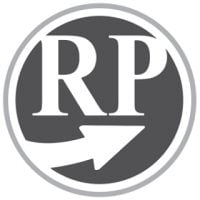Navy Substance Abuse Rehabilitation Program - SARP
Drug Rehab Center in Portsmouth, Virginia
The Navy Substance Abuse Rehabilitation Program (SARP) offers comprehensive, accredited, and personalized addiction recovery services to individuals and their families, focusing on physical, mental, and spiritual wellness.
Navy Substance Abuse Rehabilitation Program - SARP is a highly regarded treatment facility located in Portsmouth, Virginia. Accredited by JCAHO, it is a trusted provider for individuals suffering from Alcoholism, Substance Abuse, Opioid Addiction, and Dual Diagnosis. The facility offers a range of comprehensive treatment options, including Detox, Inpatient, Outpatient, Aftercare Support, Dual-Diagnosis, and Intensive Outpatient Levels of Care.
At Navy Substance Abuse Rehabilitation Program - SARP, individuals can access a wide range of services tailored to their specific needs and circumstances. They provide detoxification services to safely manage the withdrawal process, ensuring a comfortable and supervised transition. Additionally, their inpatient program offers a structured and supportive environment for individuals requiring intensive treatment. For those seeking a more flexible approach, outpatient and intensive outpatient services are available, which allow individuals to receive treatment while maintaining their daily routines. Furthermore, the facility offers specialized care for individuals with dual-diagnosis, addressing both substance abuse and co-occurring mental health disorders. To support long-term recovery, Navy Substance Abuse Rehabilitation Program - SARP provides aftercare support, giving individuals the tools and resources they need to maintain sobriety beyond their initial treatment.
Genders
Ages
Modality
Additional
Accreditations

JCAHO
Conditions and Issues Treated
It’s not easy getting sober on one’s own, or even going to rehab and escaping the grasp of addiction by oneself. Substance abuse treatment gives addicts a place to stay sober while learning what it takes to quit for good. They will learn from others about what works and what doesn’t work with remaining drug-free.
Treatment centers such as Navy Substance Abuse Rehabilitation Program - SARP focus on the needs of individual addicts to heal them. There is a combination of physical and mental therapies that treat the root cause of the addiction, whether it be family problems, stress, or past traumatic events.
The final benefit of substance abuse treatment is introducing new people who can help in your recovery after you leave Navy Substance Abuse Rehabilitation Program - SARP. Through group therapy sessions with other addicts and attending support meetings once a day, a person will learn how to interact with others and cope with cravings. This is a chance for you to rebuild your social circle healthily after you leave treatment.
Opioid addiction starts when a person becomes addicted to legal or illegal opioids. The addiction can happen quickly, in just a matter of days. Opioid withdrawal can be extremely uncomfortable and lead the user to continue to use even if they want to quit. Stopping using an opioid requires medical observation. Sometimes inpatient treatment with a medically supervised detox is necessary for managing the withdrawal process while learning lasting tools for maintaining recovery. Medications may be used in some cases of opioid addiction.
Opioid addiction is one of Virginia‘s most prominent forms of addiction. It’s treated by detoxifying the body so that the chemicals from the medications no longer impact them and by therapies to correct behavior and target the root of the problem.
Recovery is not simply about stopping drug use. Recovery is working with addiction while recovering mental health issues that are fueling the addiction in the first place.
Levels of Care Offered
This center offers a variety of custom treatment tailored to individual recovery. Currently available are Aftercare Support, Detox, Dual-Diagnosis, Inpatient, Intensive Outpatient, Outpatient, with additional therapies available as listed below.
Detox is the first step of rehab. It involves giving a person time to get the toxins out of their body. During detox, the patient gets ill and they will often start using again to get rid of these unpleasant feelings. That’s why it’s so important to have a Portsmouth medical professional at Navy Substance Abuse Rehabilitation Program - SARP present. A Virginia medical professional will make sure patients don’t start using during detox. They will also provide medication to ease their symptoms and coach them through on a mental level.
Individuals who are suffering from severe addiction or have a high risk for dangerous health concerns are often recommended to receive inpatient treatment.
Choosing to enter an inpatient treatment program is beneficial for people who are suffering from severe addiction, or who have a high risk for dangerous health concerns.
Inpatient treatment is beneficial for:
- People who have a history of severe withdrawal.
- People who have attempted to overcome addiction on their own without success.
- People who have a history of relapse, or have recently relapsed.
- People at risk for drug overdose or withdrawal-related complications.
- People with medical conditions that are worsened by drug or alcohol use.
Addicts who need help with their addiction can enroll in an intensive outpatient program (IOP). But the patient won’t live there during treatment.
IOP involves patients visiting a medical office building regularly for therapy and other services while continuing to live their lives.
IOP is a step up from drug or alcohol detox, but it’s still a phase of recovery, not the end goal. Patients in need of IOP have many options for rehab and treatment.
Outpatient treatment is considered the lower intensity level of addiction treatment. It’s ideal for early phase addiction or lower intensity addictions. It may include weekly sessions instead of daily. It may include weekly sessions instead of daily. Peer group support, 12-step programs, and individual counseling may still be involved but at a lesser frequency than an intensive outpatient program. It is a good choice for someone who doesn’t need to go through a medically supervised detox and who has a supportive home environment. It requires motivation and dedication to commit to the program without constant monitoring.
Aftercare support should take place after outpatient treatment has ended. There are a few different types of aftercare support that patients can seek. These include 12 Step, Self-help groups (AA, NA), Therapeutic communities, Long-term, structured sober living arrangements, and Halfway houses (residential treatment centers).
Therapies & Programs
Individual therapy involves one-on-one sessions between the patient and therapist. It provides patients with a safe environment to openly discuss personal and sensitive issues with the therapist. They find the therapist as someone they can trust. Individual therapy aims to identify the core issues that would have led the patient to substance abuse and address them effectively. The therapist can develop patient-specific customized solutions through individual therapy, which aids speedier recovery.
Groups typically involve meetings with other recovering addicts who can relate to one another’s experiences. They might meet in person or online and typically focus on the process of staying sober rather than overcoming a specific addiction.
In these groups managed by Navy Substance Abuse Rehabilitation Program - SARP, addicts can build a sense of community and develop strong emotional connections with others who understand what they are going through. These beneficial relationships can help addicts overcome their cravings and prevent relapse at any point during the recovery process.
Patient Experience
Creative Arts
Creative Arts Therapy is a combination of several different types of art forms offered by Navy Substance Abuse Rehabilitation Program - SARP. Music, painting/drawing, writing, and drama are just some examples. It can help with mental illness and addiction.
CAT is a form of art therapy at Navy Substance Abuse Rehabilitation Program - SARP that uses creative activities such as music, painting, drama, and writing to help patients explore their feelings, develop social skills, and manage behavior. It is particularly effective with people who may not respond to other forms of therapy or lack the motivation to take part in more traditional forms of therapy. When combined with counseling, CATT can help people struggling with addiction or mental illness access their inner voices and discover their unique potential.
Experiential Therapy at Navy Substance Abuse Rehabilitation Program - SARP
Experiential Therapy teaches people how to think differently about their lives and change their emotions by changing their behavior. This type of treatment is accomplished with various activities that may involve acting, props, arts and crafts, animal care, or other tools that may be effective.
This therapy aims for patients to release suppressed thoughts that cause bad feelings and drug addiction. Role-playing, arts and crafts, music, animal care, rock climbing, etc., are some of the activities used in this therapy. Gradually an individual will feel calmer and more loving which will change their perception positively. In addition to treating drug addiction, experiential therapy is beneficial for different behavioral and eating disorders.
Payment Options Accepted
For specific insurance or payment methods please contact us.
Is your insurance accepted?
Ask an expert, call (888) 674-0062
Additional Details
Specifics, location, and helpful extra information.
Portsmouth, Virginia 23708 Phone Number(757) 953-7848 Meta DetailsUpdated November 25, 2023
Staff Verified
There are no reviews yet. Be the first one to write one.
Portsmouth, Virginia Addiction Information
The state of Virginia has been struggling with substance use and abuse like the rest of the United States. A little over 10% of the entire Virginia population uses drugs and almost 5% abuse alcohol every given year. This has led to almost 6.5% of all deaths in Virginia being somehow related to alcohol and/or drugs.
The city of Portsmouth is known for its high levels of drug abuse. Portsmouth also had the second-highest rate of fatal overdoses in Virginia. In Portsmouth, VA, there were 942 reported drug abuse cases in 2016, of those cases, 586 were for opioid abuse. There are a variety of treatment options available for addiction in Portsmouth, Virginia. Some of the most common treatments include behavioral therapy, medication, and family therapy.
Treatment in Nearby Cities
- Radford, VA (236.8 mi.)
- Jonesville, VA (377.2 mi.)
- Somerville, VA (136.1 mi.)
- Mount Jackson, VA (183.3 mi.)
- Williamsburg, VA (36.8 mi.)
Centers near Navy Substance Abuse Rehabilitation Program - SARP
The facility name, logo and brand are the property and registered trademarks of Navy Substance Abuse Rehabilitation Program - SARP, and are being used for identification and informational purposes only. Use of these names, logos and brands shall not imply endorsement. RehabNow.org is not affiliated with or sponsored by Navy Substance Abuse Rehabilitation Program - SARP.



